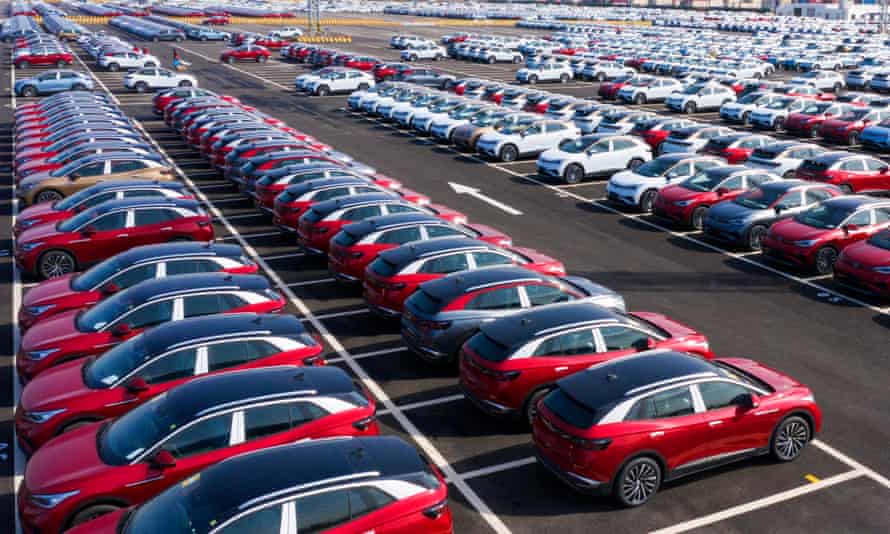Extract from The Guardian
Electric, hybrid and low-emission cars
Morrison government’s inaction is driving away chance to build a new low-emissions economy, industry experts say

Last modified on Fri 19 Feb 2021 03.32 AEDT
Australia risks being left in a “parallel world” with petrol cars as the rest of the world turns to electric vehicles in an effort reduce carbon emissions.
As Ford announced that all its cars sold in Europe would be electric by 2030, industry experts warned Australia faces an uphill struggle to catch up with other nations in preparation for the phasing out of the internal combustion engine.
Australia’s lack of incentives to encourage more people to buy electric vehicles is also driving away potentially billions of dollars worth of investment and the chance to build a new low-emissions economy, they said.
“It’s like we’re in a parallel world where manufacturers are having these big targets but countries like Australia are not keeping up,” said Behyad Jafari of the Electric Vehicle Council.
“It’s like we are still trying to work out if the internet is a real thing or not while other countries are racing after the once in a lifetime opportunity to rebuild the automotive world.”
In contrast to many countries where governments are showering consumers with cash to encourage them to buy more electric cars, Australian motorists still face a significant disincentive thanks to the luxury car tax which pushes up the cost of many EVs.
If you buy a new EV in the UK you get a tax subsidy of £6,000 (A$10,000), and around the same amount if you’re in the US, Germany and Italy.
But Angus Taylor, the federal energy minister, maintains that using tax to encourage take up of electric cars is not good value for money. It would cost too much in terms of dollars per carbon saved, he told Sky News last week after launching the government’s fuel futures study. However, his estimate that subsidies would cost $740 per tonne of carbon was disputed by critics who say it does not account for knock-on benefits for the environment via lower emissions, and in public health improvements.
Several countries have also announced plans to ban fossil fuel vehicles in the next 10 years. The UK has brought forward its ban to 2030 from an initial target of 2040. The move places it on a par with Germany, Ireland and the Netherlands, but behind Norway where sales of new fossil fuel cars will be banned by 2025.
The Morrison government hopes that the market will drive the switch-over through more people buying hybrid cars that can run on batteries or a conventional engine. But there is scepticism about whether that will work.
The EVC compared the Morrison government’s lack of strong incentives and action with the United States, where the new Biden administration has promised to replace all 660,000 government vehicles with EVs.
Days after that announcement, General Motors said it was aiming to go all electric by 2035, and now its major rival, Ford, has signalled a similar shift in Europe. On Monday the British luxury make Jaguar Land Rover said that all its Jaguar models would be switched to electric by 2025, with the rest of its models moving over by the mid-2030s.
It raises hopes that the big manufacturers could be selling their last petrol or diesel cars in the mid part of the next decade, paving the way for some countries to meet a net zero emissions target by 2050 as the last generation of gas guzzlers reaches the end of the road.
With change looking increasingly likely, the motorists’ organisation NRMA is committing $10m to build a network of fast-charging stations in NSW and the ACT to overcome “range anxiety” – the problem where people are concerned that they will be unable to recharge their cars on long journeys.
“We have to get ready whether we like it or not,” said NRMA spokesman Peter Khoury.
The other major problem was the price of EVs which he said could be overcome in time with more choice for consumers, but also with tax incentives. Scrapping the punitive luxury car tax on EVs was a “no brainer”, he said, while greater awareness about the “astronomical” savings to be made on the day-to-day running costs of EVs would also help.
Wider take-up of EVs could also help to soothe anxiety about fuel security in the wake of the closure of the Altona oil refinery and increased global instability. The government plans to spend $94bn on building a stockpile of crude oil but the need for such massive supply could be reduced by a switch to EVs.
“We’d much rather people were driving around in cars powered by Australian electricity than in petrol cars running on fuel imported from some of the least stable nations in the world,” he said.
No comments:
Post a Comment